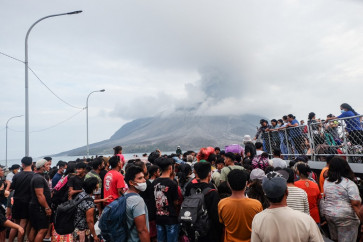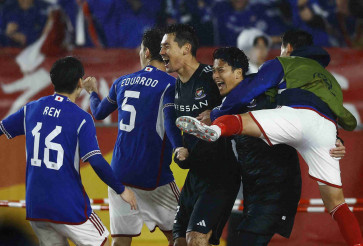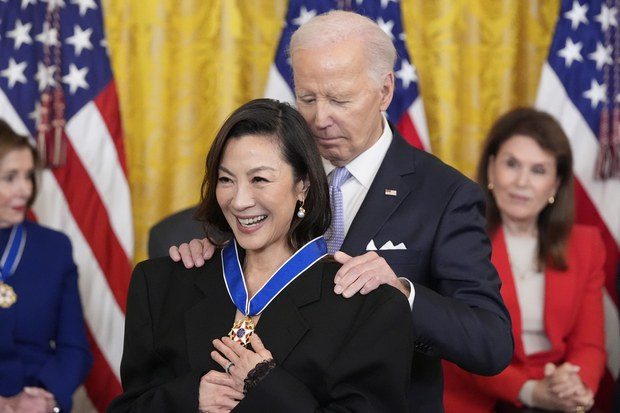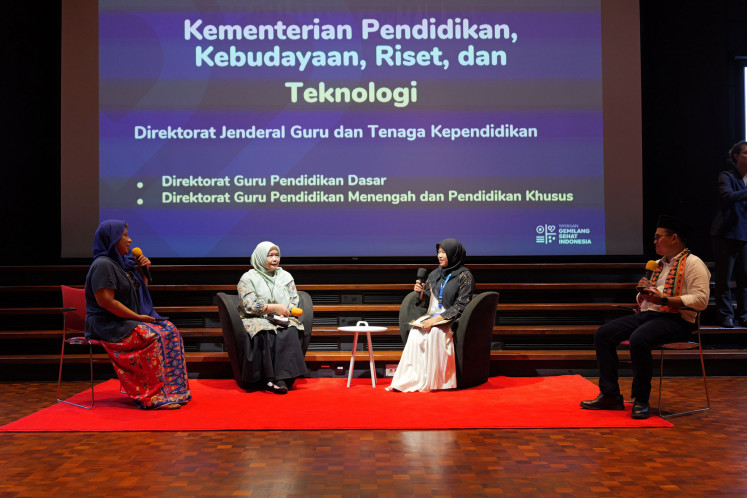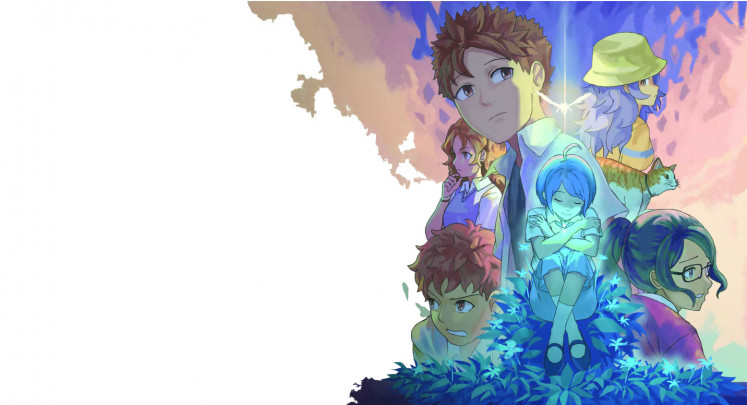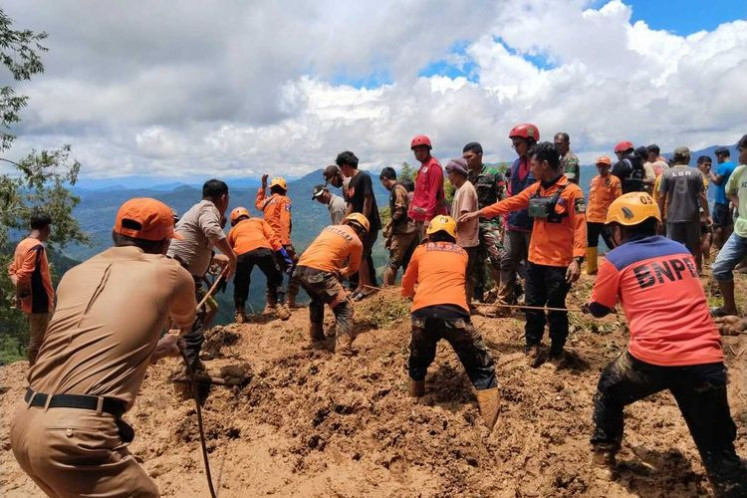Hard fight: Combatting childhood cancer in Indonesia
Experts share practical tips on how to look out for and fight cancer in Indonesian children.
Change Size
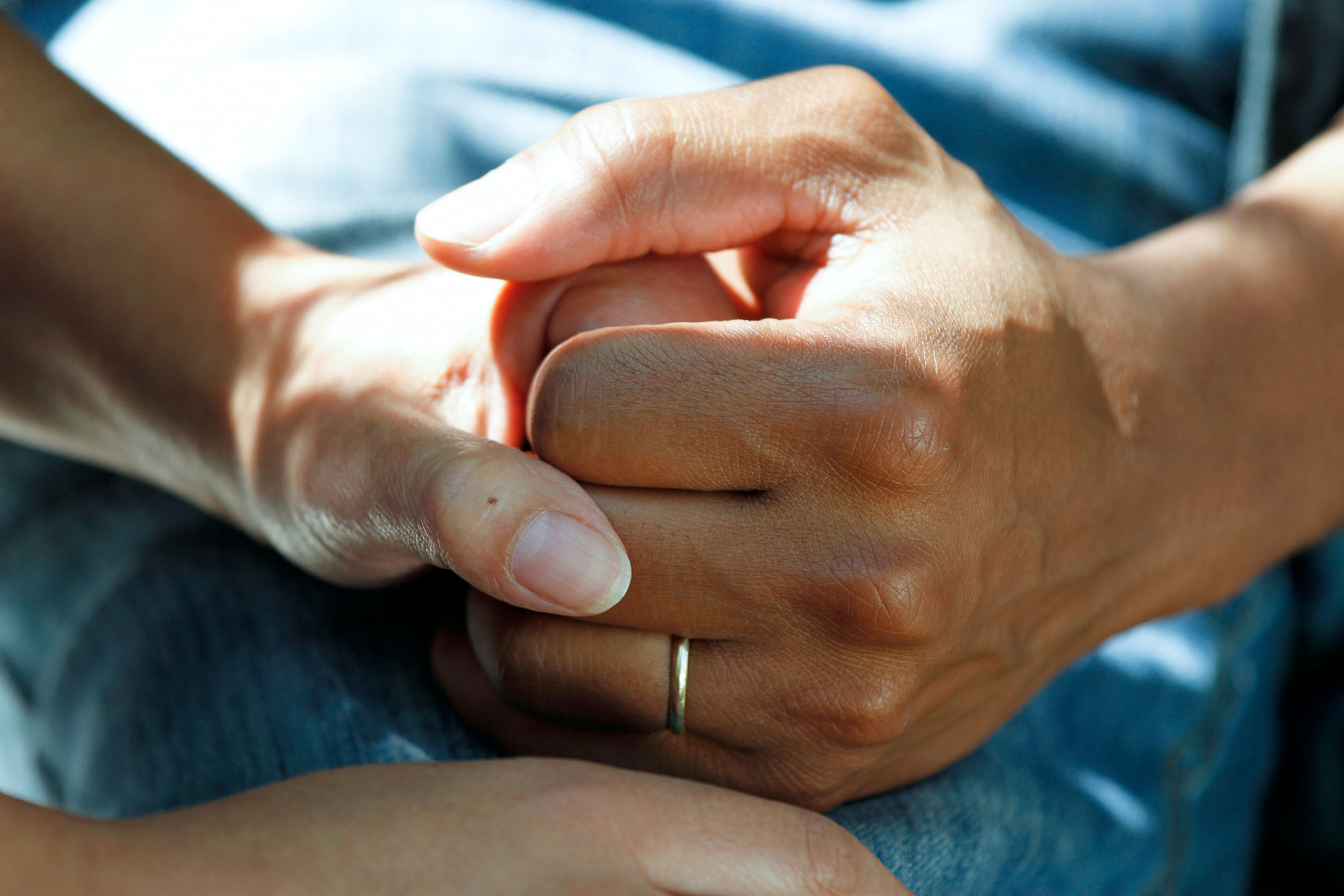 The good fight: The Indonesian medical community is working to combat cancer among children in the country (Unsplash/Courtesy of the National Cancer Institute) (Unsplash/Courtesy of the National Cancer Institute)
The good fight: The Indonesian medical community is working to combat cancer among children in the country (Unsplash/Courtesy of the National Cancer Institute) (Unsplash/Courtesy of the National Cancer Institute)
Experts share practical tips on how to combat cancer among Indonesian children.
Andrew Maruli David Manullang was a boisterous 11-year-old when he began experiencing fatigue and drastic weight loss in early 2000. These symptoms were accompanied by recurrent fevers and stomach aches, which made him weaker.
“We initially thought that he was just stressed at school,” the boy’s mother, Pinta Manullang, said during an interview at the cultural center of the United States, @america in Jakarta, on Feb. 3.
But when these symptoms continued, Pinta took her eldest son to a doctor.
A blood test revealed that Andrew had an abnormally high leukocyte count. The doctor then conducted a bone marrow aspiration and diagnosed the boy with leukemia.
Pinta and her husband cried the whole night after receiving the news.
“Anyone receiving a cancer diagnosis would definitely feel their world is collapsing, especially parents of a child with cancer,” Sylviana Andinisari, member of the cancer and blood disorder working team of the Health Ministry’s noncommunicable diseases directorate, said during a talk show at @america, Jakarta, on Feb 3.
Fifty percent of children with cancer are diagnosed late, significantly impacting their survival rates.
“A lot of people still believe that cancer only happens to adults, when actually children can also have it,” Edi Setiawan Tehuteru, pediatric oncologist-hematologist at Tzu Chi Hospital, Jakarta, said.
“The youngest I’ve personally diagnosed with cancer was a two-month-old baby,” the doctor added.
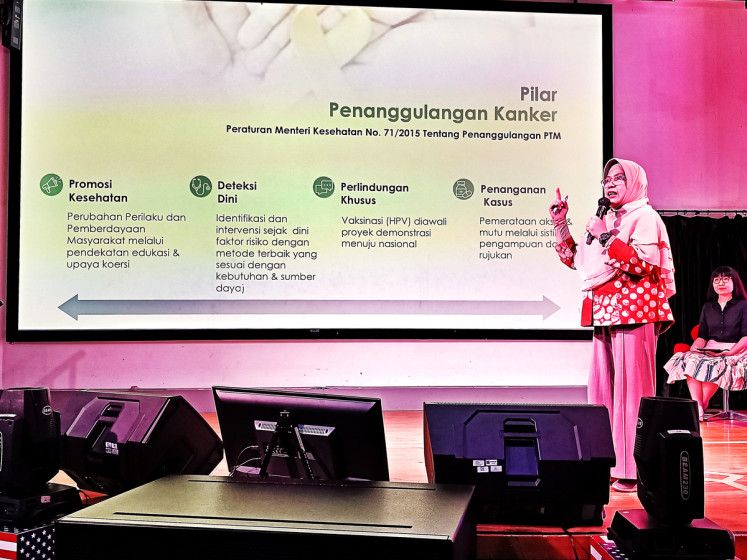
Due to the late diagnosis, only 20 percent of children with cancer are cured and make it to adulthood.
According to World Health Organization data, a vast 8,677 Indonesian children between 0-14 years old were diagnosed with cancer in 2020.
This number was also the highest among Southeast Asian countries.
Yet Indonesia only has 60 pediatric oncologists-hematologists and 14 hospitals that can handle childhood cancer.
Most of these specialists and hospitals are located in Java.
Early diagnosis is key to survival
While adults can avoid some types of cancers by practicing a healthy lifestyle, childhood cancers are unpreventable.
“There is no prevention of childhood cancers,” Edi said. “And [doctors] still don’t know the exact cause. But it is presumed that [childhood cancers] are caused by the interaction of four factors, which are genetics, chemicals, infections and radiation.”
As with most diseases, early diagnosis is key to fighting childhood cancers.
Be aware
According to the oncologist, it is important that parents become vigilant of any cancer symptoms that might be experienced by their children.
“When you start having children, you should always watch out for any abnormalities in your children’s bodies,” Edi said. “Some of them might lead to cancer.”
Among the most common childhood cancer symptoms are sudden weight loss and fatigue, as Pinta’s son experienced.
“Cancer cells are very clever,” the oncologist said. “They produce a substance that triggers the growth of new blood vessels, which absorb nutrients from all the food eaten by the children, causing them to become thin and weak.”
Parents should also be wary when their children start experiencing unexplained bruises and nosebleeds, which are the usual symptoms of leukemia.
Leukemia is currently the most common cancer among children globally, including in Indonesia.
Think the worst
Children developing brain cancer often experience intense nausea and vomiting.
“Vomiting from brain cancer is usually very severe and is often projectile vomiting,” Edi explained.
Meanwhile, a white spot in the pupil of your child’s eye might signify that they have retinoblastoma, an eye cancer that starts in the retina.
“If you see (the white spot in the pupil of the eye), immediately take your child to an ophthalmologist,” Edi said. “The doctor can confirm whether it’s cancer with a simple device called an ophthalmoscope.”
When bathing children, parents should also take time to check if there is any unfamiliar lump in their bodies.
“Parents should be wary if they find a painless bump in their child’s body, especially if it grows bigger by the day,” the oncologist said. “Always think the worst.”
While no parents would like to think that their child has cancer, in this case, it may save their life.
“By thinking the worst, you’d immediately see a doctor,” Edi explained. “[The symptoms] may [turn out not to be] be cancer, but if it is, we’d be grateful that it’s diagnosed early.”
Do not delay
Early or not, a cancer diagnosis would serve as a massive blow to any family.
“Parents should try to accept the diagnosis with a brave heart and trust the doctor for their children’s treatments,” Sylviana Andinisari said.
While a family discussion for deciding the next step is necessary, parents should not delay in commencing cancer treatments for their children.
“Rapat keluarga [family discussions], involving the extended family, are very common in Indonesia, but parents should not tarry,” Edi said. “Cancers will not just sit there. If left alone, they will grow and expand, thus harming the child’s life.”
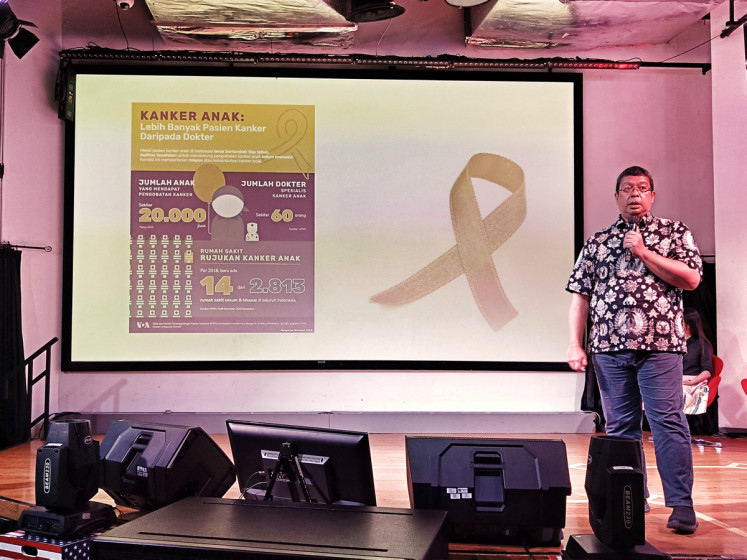
There are three main cancer treatments: chemotherapy, radiotherapy and surgery.
“What often happens in Indonesia is that parents, who fear the side effects of the treatments, take their child to consult a dukun [shaman],” Sylviana said. “They would only return to the (medical) doctor when the [shaman’] therapy doesn’t work and their child’s condition has become worse.”
“By then, it’s usually too late to do anything,” Sylviana added.
Cancer treatments indeed have horrible side effects on patients.
“Chemotherapy […] doesn’t only attack cancerous cells, but also normal cells that grow rapidly, such as hair and gastrointestinal cells, causing balding, diarrhea and vomiting,” the oncologist said. “But now, we already have drugs to alleviate these side effects.”
Work together
“It’s not easy for both the child and parents to experience this,” Pinta Manullang reminisced. “But first of all, parents have to accept the situation and encourage their kid in facing it.”
To encourage their 11-year-old son to undergo cancer treatment that often left him feeling sicker, Pinta explained the situation to Andrew in simple language and made him understand that these treatments were necessary to combat his disease.
“Anyo [Andrew’s nickname] was a courageous boy,” Pinta said. “Despite his treatment and the many side-effects, he kept going to school and became an inspiration for his schoolmates.”
Andrew passed away in 2008, approximately one year after his bone marrow transplant. Four years later, Pinta and her husband set up the Anyo Indonesia Foundation, which provides a halfway home for children with cancer and their families in Slipi, West Jakarta, not far from the Dharmais Cancer Hospital.
“We have a lot of homework to save other ‘Anyos’,” Pinta said.
One of the foundation’s current goals is to raise the survival rates of Indonesian children with cancer from 20 to 60 percent by 2030, which aligns with the WHO’s global goal.
“I believe that if we all join hands to combat childhood cancers, we can save more lives,” Pinta concluded.

